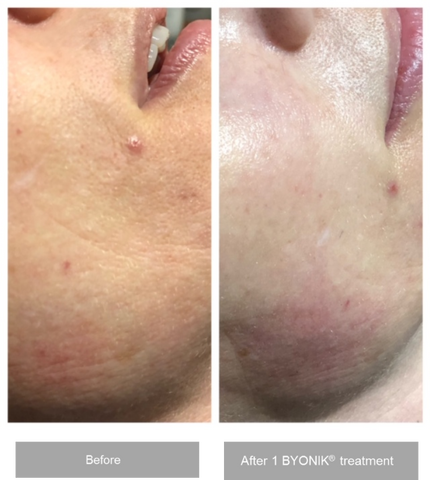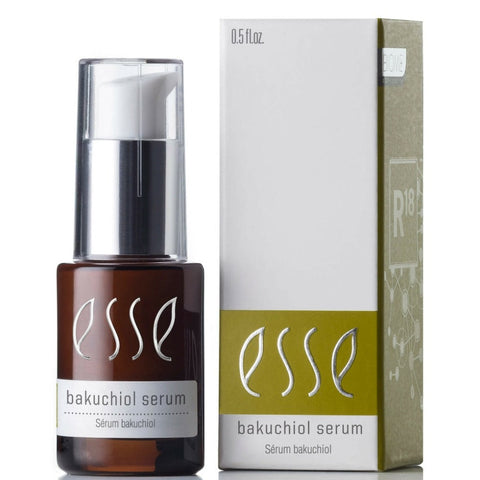Your Cart is Empty
We reopenfor deliveries on 5th January. Wishing you a very merry Christmas.
Menu

We reopenfor deliveries on 5th January. Wishing you a very merry Christmas.
Shop

SKINCARE FOR SENSITIVE SKIN: TIPS FOR HEALTHY SKIN
březen 12, 2024 3 min read
What is considered sensitive skin?
There are many things that people mean when they say they have sensitive skin. Typically people are describing skin which has a lower tolerance to specific skincare ingredients and that they experience redness, swelling, itching, burning or stinging sensations. Causes commonly include acne, rosacea, a weak skin barrier or contact dermatitis from allergens.
What’s going on with my skin?
Internal and external factors
Often it’s a mix of internal and external factors - like acne, rosacea, pollution, environmental toxins, heat, skincare products

If you feel a certain product is the trigger it is best to eliminate all skincare until your skin has calmed. Then gradually through a process of reintroduction you can establish the perpetrator. It’s no real surprise that most common allergens are fragrances and preservatives.
More recently, a group of ingredients called alkyl glucosides, which are found in many “eco-friendly” products have been linked with skin allergies too. Natural sources of alkyl glucosides include coconut oil, palm oil, rapeseed oil, corn, wheat starch, and potatoes.
Here are my top tips for managing and calming sensitive skin:
Tip 1: Take it easy with cleansing. Avoid any cleansers with SLS or sulfates and abrasive scrubs and micellar waters which degrease. Instead, for healthy skin, choose creamy cleansers which cleanse and nourish. Your skin produces valuable oils at a great metabolic cost, do not wash them away. Your skin should never feel dry or squeaky clean.
Tip 2: Turn towards the sun or add a vitamin D product into your regime. 10 minutes of everyday sun is great because Vitamin D is essential to your skin health.
Tip 3: Exercise is good for you, period. It’s also great for skin health. Sweating it out at the local gym releases toxins that build up over time and getting your heart rate up, coupled with good breathing techniques, increases blood flow to your entire body and this includes your skin.
Tip 4: Getting out into nature helps reseed your skin with an abundance of nature’s best medicine – good microbes. It’s why city dwellers exposed to pollution are more likely to experience troubled, congested and sensitive skin.
Tip 5: Avoid ingredients that can be sensitising or barrier stripping.
Skincare Irritants To Avoid:
- Artificial fragrance or colours
- Propylene glycol
- Certain essential oils. (Although typically skincare with essential oils lower than 0.3% are non-sensitising)
- Acidic products (some AHA’s, and pure L-ascorbic acid)
- Chemically based sunscreens (look instead for zinc or titanium dioxide only)
- Alcohol based products like toners
- Hydrocortisone and other topical steroids
- Benzoyl peroxide
- Facials that include thermal heat, chemical peels, scrubs. Instead opt for light based therapies and barrier building and detoxifying lasers)
Tip 6: Look for anti-inflammatory ingredients PLUS barrier repair ingredients that will calm AND fortify your skin’s resistance. Most sensitive skincare is ‘passive’ so it doesn't change the skin.
My client focused customised approach at Mrs Ritchie is to calm, seal then heal. Sealing and barrier building skincare breaks the inflammatory cycle and builds resilience through lowering skin pH, lowering water loss and boosting skin hydration. Moisture is locked in to the skin and cells can begin to function optimally – the result – a reduction in your sensitivity and your ageing skin rate.
Natural SkinCare Ingredient To Look For:
- Niacinamide tells your skin to make its own ceramides
- Ceramides
- Cholesterol
- Hyaluronic acid
- Glycerin
- Ectoin
- Aloe vera
- Colloidal oatmeal
- Shea butter
- Olive squalene
- Sea buckthorn oil
- Zinc oxide sun protection
- Pre Pro and Post Biotic

Prebiotics are the ‘food’ for good bacteria, enabling the skin to protect and stop the bad bacteria, therefore reducing inflammation and redness. Postbiotics are a more reliable way of delivering probiotics to the skin and give you the same benefits of live probiotics because they are more resistant to being destroyed in the bottle
If you need suggestions on products specific to you, please get in touch. Some sensitive skin has other issues at play, like rosacea or acne or super-dryness. You can also browse the online shop here.
And don’t believe that anti-ageing treatments are off limits. Non thermal lasers are absolutely brilliant at calming skin and replenishing moisture deep into the skin like fillers.
We’ve been treating a physio and a medical consultant today for just this reason.
BOOK YOUR SKIN COACHING SESSION WITH MRS RITCHIE HERE
OUR BRAND NEW TREATMENT ROOM IS NOW OPEN IN CENTRAL LONDON.
